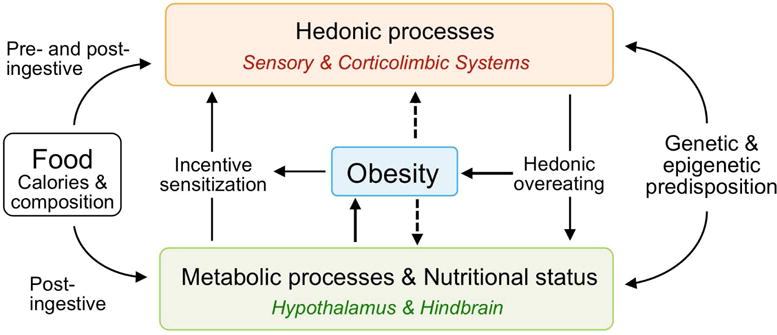Fig. 5.

Schematic diagram showing interactions between metabolic and hedonic consequences of food and their relationship to obesity. Obesity can be caused by overstimulation of hedonic processes leading to hedonic overeating or by impaired metabolic processes leading to lack of compensation following overfeeding. Both processes are subject to an interaction with genetic and epigenetic predisposition. The obese state can also lead to a secondary impairment of both hedonic and metabolic processes, leading to a vicious circle and further progression of obesity, as well as causing metabolic disturbances in offspring.
